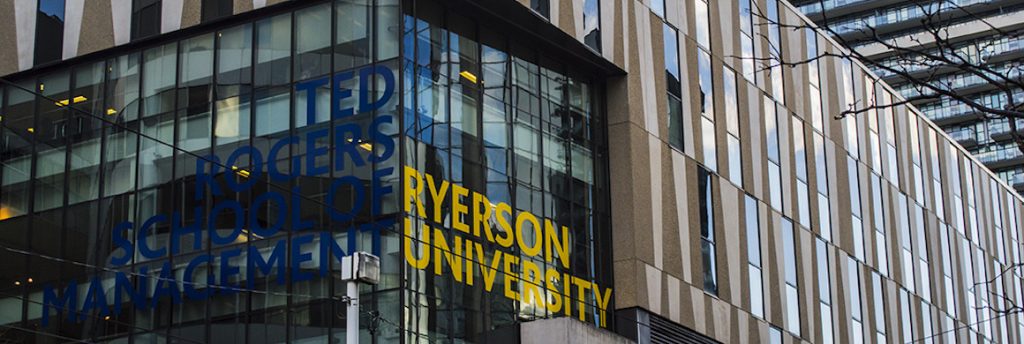Co-Op Students Bring Innovation According to Ted Rogers Dean

Do you want your company to be more innovative? The key could be hiring more co-op students. At least, that’s what Steven Murphy, the Dean of the Ted Rogers School of Management at Ryerson University, recently told the Globe and Mail. According to Murphy, co-op students help catalyze innovation in companies thanks to their “tech-savvy, resourceful, purpose-driven and unburdened” outlook.
Murphy saw this innovation most recently during a collaboration between CIBC Mellow and the Ted Rogers School. The idea behind the collaboration was to partner five Ryerson students—from different backgrounds—with five CIBC Mellon employees for a period of four months. They met in the Business Innovation Hub and were given the mandate to identify and find solutions for challenges and opportunities that CIBC was facing.
The key to the collaboration was diversity. The students had backgrounds in everything from business to technology management, accounting, finance, entrepreneurship and even environmental biology. While the CIBC employees also came from diverse areas including accountants, client relations, technical support and a business development proposal writer.
To ensure success, there were three rules that the collaboration had to follow:
- True Partnership: The Ryerson students were given trust and credibility to complete each task at hand.
- Freedom to Fail: The ten Hub members were encouraged to experiment and potentially fail, if that’s what it took.
- No Boundaries: The team was encouraged to ask any and all questions, to request data, set up meetings, and do whatever it took to get the job done.
At the end of the four months, the ten-person collaboration came up with some innovative ideas that were both tangible and implementable. Their ideas were:
- A way to standardize fee-billing processes and enhance consistency, efficiency and revenue.
- A new enterprise-wide communication tool to enhance collaboration.
- A virtual reality augmented tool that would be used to help employees and clients assimilate complex data.
“This new model of experiential learning is about so much more than simply letting students gain work experience,” Murphy wrote. “It’s about unleashing the energy and imagination the students embody, to drive innovation in the workplace and help solve the corporate leader’s conundrum of how to shift corporate culture and embrace innovation. Bit by bit, corporate culture is best challenged from within.”
